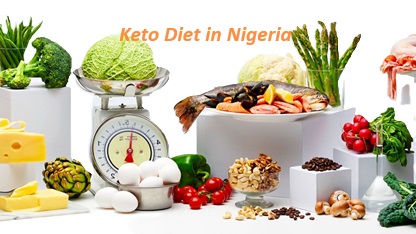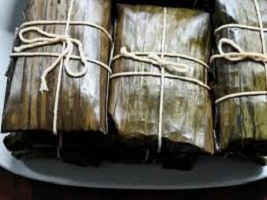Keto Diet Low Carb Meal Plan in Nigeria:
Keto Diet in Nigeria: Low Carb Meal Plan
List of Keto-Compliant Foods in Nigeria (Keto diet meal plan in Nigeria): Everything you should know about Nigerian keto Meals

If you haven’t already heard, the ketogenic lifestyle is sweeping the nation. Learn more about it here, and if you’re familiar, check out our Nigerian keto diet plan designed to help you achieve your dream physique.
Keto Diet Low Carb in Nigeria
Crafting a keto diet plan in Nigeria can be customized to incorporate local foods while still adhering to the low-carb, high-fat principles of the keto diet.
What is the keto diet? Is the keto diet low-carb?
The ketogenic (keto) diet is a nutritional plan emphasizing high fat intake, moderate protein consumption, and deficient carbohydrate levels.
Its primary goal is to induce a metabolic state known as ketosis, where the body transitions from relying on glucose (derived from carbohydrates) to using ketones (produced from the breakdown of fats) as its main energy source.
This diet has become popular due to its potential benefits for weight loss, enhanced mental clarity, and various health conditions.

Key Features of the Keto Diet Low-Carb
- High Fat Intake
- Typically, 60–75% of total daily calories come from fat.
- Sources include oils (coconut, olive, and avocado), butter, ghee, lard, fatty fish, avocados, nuts, and seeds.
- Moderate Protein Intake
- About 15–30% of total daily calories come from protein.
- Sources include meat, poultry, fish, eggs, and dairy products.
- Low Carbohydrate Intake
- Only about 5–10% of total daily calories come from carbohydrates.
- This usually means consuming less than 20–50 grams of carbs per day.
- The focus is on low-carb vegetables (leafy greens, broccoli, and cauliflower), some berries, and avoiding high-carb foods like grains, legumes, fruits (other than berries), and starchy vegetables.
By understanding these principles and carefully planning meals, individuals can follow a keto diet that aligns with their health goals and lifestyle preferences.
What does it mean for a food to be keto-compliant?
A keto-compliant diet or food must have the following qualities:
- Low carbs (5-10%)
2. Moderate protein (20–25%)
3. High fats (70–80%)
4. High fibre
Keto Diet Low Carb food list
Here are the foods you should consume if you want to go on a keto diet:
- All sorts of fatty meats (including turkey, red meat, bacon, organ meat and so on);
- Fatty fish (mackerel, tuna);
- Mayonnaise;
- Butter;
- Cheese;
- Eggs;
- Seeds and nuts (walnuts, almonds, etc.);
- Oils (palm oil, coconut oil, olive oil);
- Low-carb fruit (coconut, avocado);
- Low-carb vegetables (lettuce, cabbage, cucumber, peppers, onions, tomatoes, okro, spinach, ugwu);
- Spices (everything, from salt and pepper to herbs).
Foods to avoid if you are on the keto diet
You should avoid the following foods on the keto diet:
- Sugary foods and drinks (sweets, cake, fruit juice, smoothies, ice cream, soft drinks, etc.);
- Tubers and root vegetables (carrots, sweet potatoes, potatoes, plantains, yam);
- Low-fat/diet products;
- Starches or grains (wheat, noodles, cereal, pasta, rice, wheat-based products, and so on);
- All fruit (apart from avocado and coconut);
- Legumes and beans;
- Condiments that contain sugar;
- Unhealthy fats (for instance, vegetable oil);
- Alcohol.
The following category of people should not try or go keto:
- Pregnant women
- Diabetics, especially uncontrolled diabetes
- Persons with heart diseases or a history of heart diseases
- Persons with kidney diseases or liver diseases.
- Nursing mothers
- Breastfeeding mothers
- Persons with a previous history of stroke
Starting a Keto diet in Nigeria
Embarking on a ketogenic diet in Nigeria involves adapting the high-fat, moderate-protein, and low-carbohydrate principles to include local foods.
This approach aims to put your body into a metabolic state called ketosis, where it burns fat for energy instead of glucose.
The keto diet has gained popularity for its potential benefits, including weight loss, improved mental focus, and positive effects on various health conditions.
By selecting appropriate Nigerian foods, you can successfully follow the keto diet and work towards achieving your health and fitness goals.
According to Everydayhealth, these are 10 things you must do or know before starting a Keto diet:
- Understand Which Foods to Eat and Avoid: Familiarize yourself with keto-compliant foods available in Nigeria.
- Assess Your Relationship with Fat: Be prepared to consume a lot of fats on this diet.
- Change Your Perspective on Proteins: Adapt your view of protein consumption.
- Prepare Your Meals: Learn to cook your meals as snacking becomes limited.
- Discuss Your Goals with Your Family: Share your weight loss goals with your family.
- Be Aware of Potential Side Effects: Understand the possible side effects of the keto diet.
- Maintain Electrolyte Levels: Ensure you boost your electrolyte intake.
- Know When to Stop: If the diet isn’t working for you, be ready to stop.
- Acknowledge the Cost: Be aware that the keto diet can be expensive.
- Plan for After the Diet: Have a plan for after keto, as it isn’t intended for long-term weight loss.
Nigerian Keto Diet Timetable
sample of a 7-day keto diet Low Carb plan
Now that you know what you should and should not eat, you can make your diet plan, but we want to offer you a sample to make things easier.
Let’s break it down by meal for each day of the week. You can click here and get a PDF version of the diet plant from Koboko Fitness. Without further ado, here is the meal plan:
Monday
- Breakfast: Omelette with vegetables/spinach and sliced avocado
- Lunch: Chicken salad with yogurt and groundnuts
- Dinner: Stir fry with chicken, vegetables and rice (rice optional)
Tuesday
- Breakfast: Eggs and bacon/sausage
- Lunch: Pork/beef/chicken with yogurt on the side
- Dinner: Peppersoup made with meat left over from lunch
Wednesday
- Breakfast: Fruit salad
- Lunch: Ground beef and vegetable stir-fry
- Dinner: Eggs, avocado and tuna
Thursday
- Breakfast: Ground beef and vegetable stir-fry
- Lunch: Vegetables left over from breakfast and grilled fish
- Dinner: Okro and fish soup
Friday
- Breakfast: Sausage and boiled eggs
- Lunch: Dodo and beans
- Dinner: Vegetable salad (cucumber, tomatoes, lettuce, carrots, spinach) with chicken
Saturday
- Breakfast: Sardines
- Lunch: Stew and yam
- Dinner: Suya
Sunday
- Breakfast: Watermelon
- Lunch: Efo egusi with keto fufu
- Dinner: Seafood salad

5 Keto Diet meals in Nigeria that are so easy to prepare
Here are five recipes of low-carb keto meals you can try.
- · Keto moi-moi (Cabbage pudding)
- · Fish moi moi
- · Okro soup (keto recipe)
- · Butternut squash porridge
- · Almond puff puff buns


